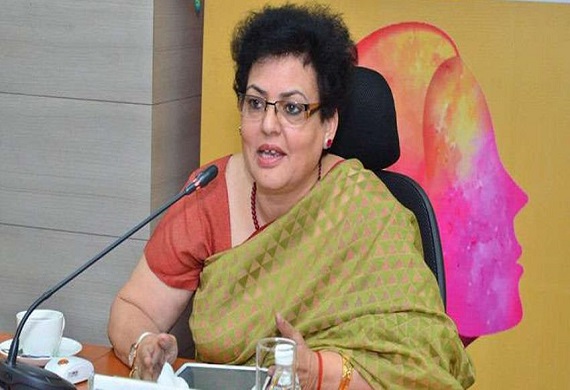
Legal Awareness Key Step towards Women Empowerment
By: Sruthi, Writer
The term “Legal” can refer to anything linked to or authorised by the law. The term itself denotes distinct aspects of society, including the material, informational, and subjective realms. “Material” refers to the involvement of government and legal organisations and agencies. In the information sector, legal information is examined in terms of facts, historical realities, and the logical framework of the social knowledge economy. The subjective aspect of the term legal refers to citizens' legal awareness and consciousness. This component is used to judge whether or not society's justice has been served.
As a result, legal awareness assists a person in identifying his role in the general social upliftment of the country and people. It promotes understanding of the law as an objective social reality, as well as the presence of subjective reactions of individuals to the country's laws.
Women down the Ages
Women in our country are viewed through patriarchal eyes. Even in today’s day and age several households see women who remain silent and marginalised, giving the men an upper hand and greater role in decision-making. It is vital that women stand up for themselves, and in order to do so, information plays a great role as it can make them aware of their rights.
The Indian constitution is also concerned with women's issues, with constitutional and legislative safeguards for women to assist balance Indian society's socioeconomic fabric. What has to be worked on is an understanding and comprehension of how to use them in real-world situations.
Women have advanced considerably over time. They have been shown in various situations throughout history and have been a vital, if not celebrated, part of them. Every culture on earth has presented a woman as a wonderful daughter, ideal wife, and pious mother, implying that these traits are enough to justify her existence and that she does not need to pursue any vocation or specialism in the arts, culture, or sciences. The woman has carved out a niche for herself in this patriarchal culture and battled for her survival and freedom rights through her long path. Her efforts have benefited her political goals, resulting in the passage of particular laws and acts that provide her with equal access to personal and professional growth.
It is broadly understood that women in Indian society have faced intolerance and social injustice in matters ranging from basic human necessities to property inheritance. Despite the fact that the Indian Constitution grants many rights to women, the condition of women in our country is far from ideal.
The fact is that women's lack of awareness of their rights is what hinders them from speaking up for themselves and their right to equal opportunity. It is widely acknowledged that eliminating violence and discrimination against women necessitates well-planned legal awareness programmes that emphasise and empower women by giving them with knowledge about constitutional safeguards created expressly for them.
Big Step Taken by NCW and NALSA
The National Commission for Women (NCW) and the National Legal Services Authority (NALSA) have recently launched a pan-India legal awareness campaign to teach practical information about legal rights and remedies under various women-related legislation.
The “Empowerment of Women through Legal Awareness” programme, which began in Varanasi, Uttar Pradesh, aims to reach all states and union territories across the country through regular sessions to educate women about the various mechanisms of the justice delivery system that are available to them for redressing their grievances.
Justice UU Lalit, a Supreme Court of India Justice, who launched the initiative, said, “The nature of these programs initially has been that we are training the teachers those who in turn will be training various women in cross-sections of the society and will make them aware of their legal rights”.
Women and girls will be educated on their rights under numerous laws, including the Indian Penal Code, as part of this programme. The initiative will also sensitize them how to approach and use the different channels available for grievance resolution, including the police, the executive, and the judiciary.
Rekha Sharma, chairperson of NCW said, “It has become quintessential for women to be aware of the rights bestowed upon them by the Constitution and the procedure to remedy the situation or seek justice if they are infringed upon”.
According to Justice D. Y. Chandrachud, the legal concept of women's rights is not only a women concern. “Awareness is not only a woman's issue. Awareness about the rights of women can be truly meaningful if that awareness is created amongst the younger generation of men in our society. Because I believe that the deprivation of rights of women, if we have to find an answer to them, the origin must be in the changing of mind-set, both of men and women. The more we realise that the category of women encompasses various social, economic and political disadvantages, the more we will be able to cater to their individualised and actual needs. True freedom for women, in other words, is truly intersectional”.
According to the judge, our society is characterised by a sexual division of labour between men and women, and this sexual division of labour is the cornerstone of our patriarchal system. “This division of labour is considered natural- Women owe unpaid domestic labour to their families out of love! A very distinguished scholar Nivedita Menon has said that the sexual division of labour is not just a technique to divide work but it conceals the fact that men's work is considered human while women's work is perceived as determined by their nature”.
On August 15, 2020, the commission launched a pilot programme for women at the grassroots level called "Legal Awareness Program" in collaboration with NALSA. The pilot project covered states such as Uttar Pradesh, Maharashtra, West Bengal, Madhya Pradesh, Rajasthan, Andhra Pradesh, Telangana, and Assam.


.jpg)



